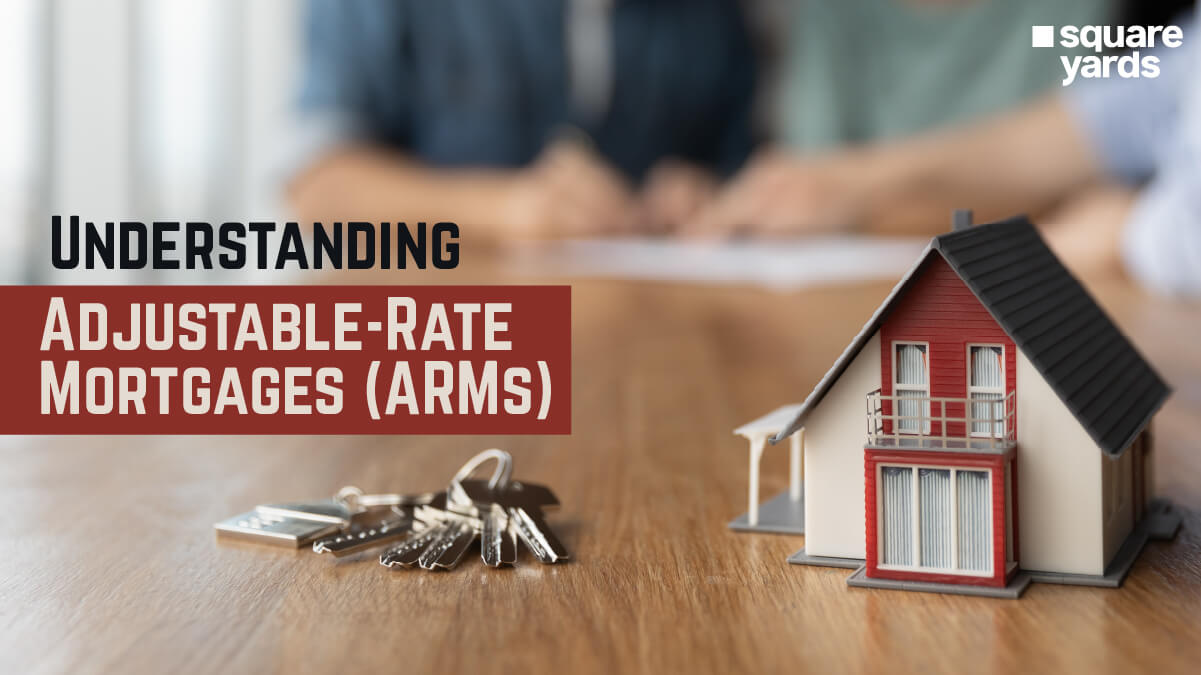Refinance mortgage rates of your home could unlock unexpected monthly savings and lower interest rates. This renegotiation of mortgage terms on your property can save you from high interest rates and access the hidden equity of your home. However, this could also backfire and extend the mortgage terms of your loan. Understanding the pros and cons of such a big financial decision can help you make a well-informed decision and aid in undertaking the correct route for mortgage refinancing.
What Does It Mean to Refinance Mortgage Rates?

In Layman’s terms, mortgage refinancing is a straightforward way to get better mortgage terms on your home loan, saving you money and reducing the loan’s term. This will also help you access your property’s sizable equity and understand your home’s current market value. The homeowner will remove and renew the existing mortgage rates with new terms, especially when the interest rates are lower or the housing market is going strong.
According to the 2023 CMHC Mortgage Consumer Survey of Canada Mortgage and Housing Corporation, almost 19% of homeowners have already refinanced their home mortgage to fund home improvements (24%), purchase a rental property (8%) and get rid of their debt (24%). Even a 1% reduction in your monthly mortgage rate can save you thousands of dollars and achieve your long-term financial goals.
Mortgage refinancing is not the same as mortgage renewal, as it eliminates the old contract and introduces new mortgage terms. Citizens can renew their mortgage only at the end of the term, and it requires no added fees or re-qualifications. On the other hand, mortgage refinancing requires extra payment, and homeowners need to be qualified to make this financial decision.
When is The Best Time To Refinance Your Mortgage?
Refinancing your mortgage terms can cost between 3% and 6% of the original purchase price, requiring an application fee and requalification. So, it is best to think twice before refinancing your mortgage terms. You can take this step when the market interest rates are down and you have a fixed-rate mortgage payment. You can also refinance when making a huge purchase, like a car or rental investment, to make up for some extra monthly payment. You can also refinance your mortgage when your home’s equity value has appraised. This can be easily calculated by subtracting your mortgage balance from 80% of the market’s current home value.
An example of this
Current Market Value Of A Home: $500,000 (Can be found out by any real estate agent)
Outstanding mortgage balance out of the total loan value: $300,000 (Can be noticed on your mortgage payment sheets)
Home Equity= Current Market Value Of A Home- Outstanding mortgage balance out of the total loan value
This comes out to be $200,000, which the refinanced mortgage can access.
Reasons Why You Should Refinance Your Mortgage
Here are some of the reasons why you should refinance your mortgage and why, as a homeowner, it’s a good financial decision to take:
Reduced Monthly Payments
One of the biggest benefits of refinancing your mortgage is the reduced monthly payments, a huge stress reliever for homeowners. With the increasing mortgage interest rates, any wise property owner would choose to refinance their home mortgage if they feel their house has hidden equity. If this is not the case, any homeowner can also increase the length of their amortisation, which will lead to reduced monthly payments for immediate fund needs. Bank of Canada’s overnight rate currently stands at a 22-year-high of 5%, but economists believe this will start reducing by mid-2024.
An example of this is:
If a home worth $300,000 has a mortgage rate of 5.5% over five years of payment, its monthly payment is $1,703, and its overall interest is $81,270 over the years. If this payment is refinanced to 4.5%, the monthly payment is $1520, and the compiled interest rate is $66,080. This saves $183 every month and leaves an interest amount of $15,190.
Paying Off Your Debt
According to a December 2023 report, Canada’s household credit card market debt is measured at 181.6%, which means that more and more people want to pay off these outstanding payments. Credit cards can be another expensive form of debt if not used properly, so consolidating these loans into a mortgage is the safest way to reduce monthly expenses and pay off debt by increasing the mortgage term rate. Debt consolidation has one of the lowest interest rates compared to unsafe loans and banking institutions.
An example of this can be this
If X has a Loan-to-Value ratio of $2,879 at a 6% interest rate, they can refinance their mortgage rates to 4.5% and reduce monthly payments by $2,433. X can also consolidate her debt of $30,000 into this and a new LTV of $2,578 monthly.
Convert Your Mortgage Terms
If any homeowner is fed up with their variable mortgage payments, based on the interest rates of the Bank of Canada, they can easily convert their mortgage to a fixed interest rate. This means that the fee will not vary according to the current market rates and that the homeowner can easily get some stability in regular monthly payments. The variable mortgage plans are beneficial only till the housing market is going strong. In contrast, the regular mortgage payments are forever stable and don’t put much financial strain on the owner.
Accessing Home Equity For Cash
If you feel your home’s market value has increased with time and your home’s equity has increased, you can access up to 80% of that amount (minus the mortgage payment). You can put this cash towards anything, like making long-term rental investments and home renovations.
Here is an easy example of this
If you purchased a home for $500,000 and its mortgage value is $200,000, your home’s equity is $300,000. If your property’s value grows to $700,000 due to nearby infrastructural developments, your home’s new equity value is $500,000. About 80% of this can be withdrawn in cash and used for any purpose.
Reasons Why You Should Not Refinance Mortgage Rates
Mortgage Refinancing has some drawbacks and is not the best move, even with lower interest rates. Here are some of the reasons why you should not refinance your mortgage.
Long-Term Mortgages
Mortgage refinancing can easily increase the overall time frame of your mortgage repayment, reducing the monthly amount for homeowners but adding to the overall repayment stress. This can lead to more interest payments than expected, and the homeowner constantly fears losing their home.
Expensive Fees For Mortgage Refinancing
Mortgage refinancing is very expensive, including legal fees, appraisal costs, a discharge fee for switching lenders, and even pre-payment penalties for switching mortgages before the term ends. You must pay the interest rate for three months to switch mortgage terms or an interest rate differential between the two. This can impact your current savings and might not cover the cost of changing the terms.
Lowers The Chances Of Moving
Refinancing your mortgage can influence how long you stay in your home, as it often resets the loan term. However, refinancing does not legally bind you until the mortgage is paid off; you can sell your home and pay off the mortgage anytime. The lengthy paperwork that comes with refinancing may seem daunting, but benefits, such as lower interest rates or reduced monthly payments, outweigh the drawbacks. It’s vital to consider that the value of your property can be affected by various external and internal factors.
Fluctuating Markets
Canada’s housing market constantly fluctuates, and shifting from one mortgage plan to another, especially fixed to variable, is not advisable. This might not reap the desired financial benefits. The houses’ equity value might also increase or decrease at any time, depending on the town’s real estate market, which will change the property’s LTV ratio. Rapid inflation might erode all the benefits gained from mortgage refinancing.
A Glimpse At The Pros And Cons Of Mortgage Refinancing
Here is a detailed list of all the pros and cons of mortgage refinancing, which might help any Canadian homeowner make up their mind:
|
Advantages |
Disadvantages |
|
Mortgage refinancing can reduce the interest rates in home mortgages or increase the loan terms, decreasing the owner’s monthly payments. |
Mortgage refinancing without help from a financial agent can further increase the monthly payments for the owner. |
|
Mortgage refinancing can be done at any time, unlike mortgage renewal. |
Refinancing a mortgage is expensive due to the fees and penalties associated with switching mortgage plans. |
|
It helps access the increased equity of the house. |
It temporarily binds the owner to one location until the loan is completely paid off, sometimes taking decades. |
To Do Mortgage Refinancing Or Not, That Is The Question
In conclusion, mortgage refinancing is one of the most powerful financial tools for homeowners as it lowers their monthly payments but might bind them to one property for too long. This can increase the owner’s financial stability but might not offer the overall rewards with the ample legal fees and prepayment penalties that come with mortgage refinancing. Making this decision might affect your finances for a long period, and it is necessary to consult a financial agent to make informed decisions. Mortgage Refinancing is not the best economic tool for every house owner, and this step must align with the long-term financial goals of the property owner.
You May Also Read
|
Guide To Loan To Value |
|
|
Know The Canada Mortgage Statement |
|
|
Explore Tax Deductible Mortgage Strategies |
|
|
Power of Early Mortgage Renewal |
Frequently Asked Questions (FAQs)
What is the negative side of refinancing?
Mortgage refinancing might increase interest rates if not checked thoroughly, and people might even agree to long-term mortgage payments, which leads to the stress of losing your home at every non-payment.
Do you have to refinance your house every five years in Canada?
No, it is optional to refinance your house every five years in Canada.
What happens if I don't renew my mortgage in Canada?
If you don’t renew your mortgage in Canada every couple of years, you might miss out on the chance to pay lower monthly mortgage payments.











